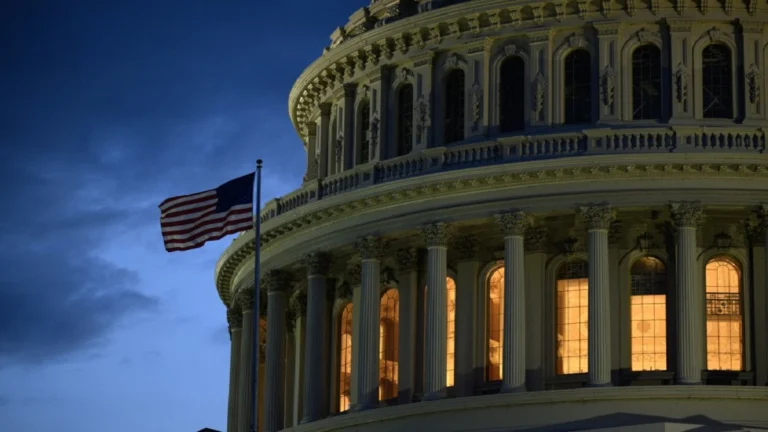US House of Representatives Narrowly Passes President Trump’s Controversial Bill

The bill redistributes wealth toward billionaires while cutting food aid for 5 million vulnerable Americans and stripping healthcare from 12 million.
July 3, 2025 Hour: 4:09 pm
The bill allocates $75 billion to ICE and border operations, $45 billion to detain immigrants (including minors), and $69 billion for border wall construction.
The U.S. House of Representatives narrowly approved President Trump’s controversial $1.3 trillion fiscal package, with a 218-214 vote after intense overnight negotiations. The bill redistributes wealth toward billionaires while cutting food aid for 5 million vulnerable Americans and stripping healthcare from 12 million.
RELATED:
U.S. Maintains World’s Largest Immigration Detention System Amid Alarming Abuses
House Speaker Mike Johnson faced a Republican rebellion, led by the conservative Freedom Caucus, which demanded guarantees on future amendments. A procedural vote was extended for hours as leaders negotiated with holdouts. Trump personally intervened, holding urgent meetings with dissenting lawmakers.
Democratic Leader Hakeem Jeffries staged a historic 8-hour, 44-minute filibuster to protest the bill, setting a new House record. Despite his efforts, the legislation passed, marking a key political victory for Trump ahead of his self-imposed July 4 deadline.
The bill makes Trump’s 2017 tax cuts permanent and adds new breaks, eliminating taxes on tips, overtime, and Social Security benefits. However, it slashes food assistance for nearly 5 million people and reduces elder care services, disproportionately impacting low-income families.
Medicaid reforms impose work requirements and cut federal cost-sharing, projected to leave 12 million uninsured over the next decade. Meanwhile, the plan adds $3.25 trillion to the national debt while granting $1.3 trillion in tax cuts to billionaires.
It allocates $75 billion to ICE and border operations, $45 billion to detain immigrants (including minors), and $69 billion for border wall construction. The bill also eases regulations on firearm silencers, drawing criticism from public safety advocates.
A temporary raise of the state/local tax deduction cap to $40,000 (reverting to $10,000 after five years) was included, along with a $5 trillion debt ceiling increase. Johnson hinted at a second reconciliation package later in 2025, signaling a broader fiscal strategy.
Only two Republicans joined Democrats in opposing the bill. Trump plans to sign it by July 4, enacting one of the most polarizing fiscal overhauls in recent U.S. history. The White House claims deficit reduction, but critics dismiss these projections as unfounded.
Author: OSG
Source: teleSUR

